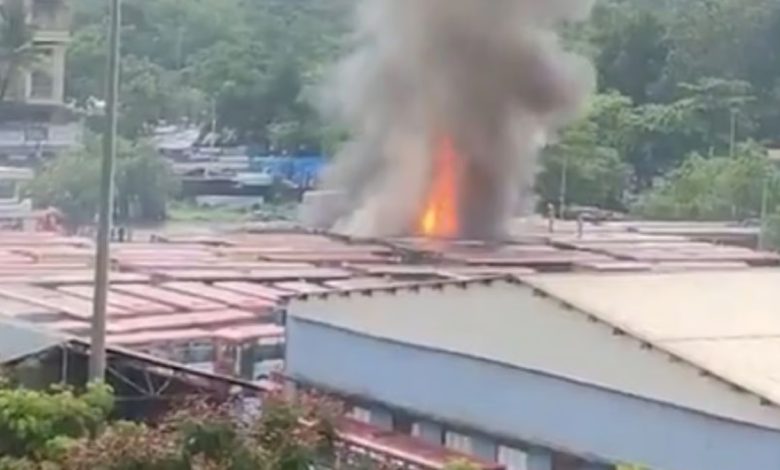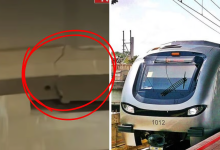Navi Mumbai: Blaze at NMMT Depot Destroys Buses, Sparks EV Safety Concerns

A devastating fire swept through the Navi Mumbai Municipal Transport (NMMT) bus facility in Ghansoli on Wednesday morning, completely destroying five vehicles and raising fresh questions about electric bus safety protocols.
The incident occurred at the Ghansoli depot, where both electric and conventional diesel buses were damaged in the blaze. Preliminary investigations suggest the fire may have originated from electrical issues during maintenance work on an electric vehicle, according to IANS reports.
While the transport authority faces significant financial losses from the destroyed fleet, emergency responders successfully contained the fire without any reported injuries or fatalities.
This latest incident compounds existing safety concerns surrounding electric buses in the Mumbai metropolitan region. Recent developments have revealed that 50 newly acquired electric buses for the Brihanmumbai Electric Supply and Transport (BEST) system are currently grounded due to missing safety equipment.
The affected vehicles, manufactured by Evey Trans Private Limited under the Olectra umbrella, represent part of a substantial 2,100-bus procurement initiative designed to modernize Mumbai’s public transportation network.
Registration records show these 12-meter buses were processed through the Tardeo Regional Transport Office between March 18 and May 16, receiving MH-01 EW series plates. Additional units delivered to the Majas facility after mid-May remain unregistered.
Safety inspections revealed a critical gap: none of the 50 buses include Fire Detection and Suppression Systems (FDSS), which are mandatory under current vehicle safety regulations. Consequently, these vehicles remain parked at the Shivaji Nagar facility, prohibited from entering passenger service.
“The Fire Detection and Suppression System represents an essential safety component, and operating without this equipment creates unacceptable risks,” explained an unnamed official familiar with the situation.
Industry sources indicate that FDSS installation typically occurs during the manufacturing process. However, current supply chain constraints prompted Evey Trans to accelerate delivery schedules to expedite registration procedures and depot allocation. The company anticipates receiving and installing the required safety systems by mid-June.
The FDSS technology provides rapid fire detection and suppression capabilities, particularly for engine compartments, activating within seconds and providing both auditory and visual evacuation warnings. These systems comply with Automotive Industry Standard (AIS-135) requirements, which mandate fire suppression within 60 seconds of initial detection.




